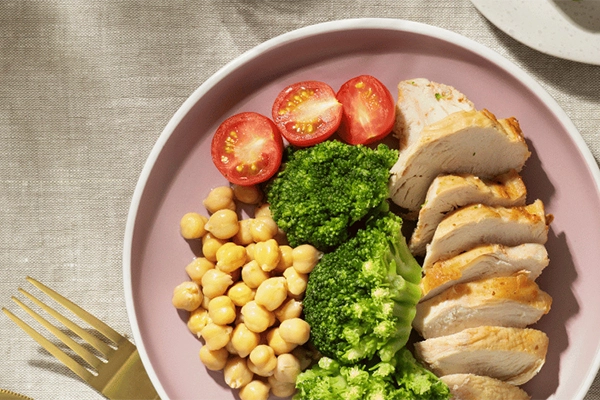Topics
How Does Diet Affect Acid Reflux?
Acid reflux, or gastroesophageal reflux, happens when stomach acid goes back into the oesophagus and causes irritation. Uncomfortable symptoms can occur due to this common digestive condition, such as heartburn, chest pain, bloating, and regurgitation of food. If left untreated, chronic acid reflux can turn into gastroesophageal reflux disease (GERD), which more intensive treatment may be required.
Diet is one of the biggest contributors to acid reflux. Many people go through symptoms after taking specific types of food or drinks, such as spicy, fatty food, or soft drinks. Knowing how your dietary choices impact acid reflux can influence individuals to make changes that decrease discomfort, improve digestion, and support health in the long run.
What are the Dietary Changes that can Improve Acid Reflux?
A. Foods You Should Avoid
Certain foods can trigger acid reflux by relaxing the lower esophageal sphincter (LES) or raising the production of stomach acid. Here are a few of the most common culprits below:
Spicy Foods |
|
Acidic Foods and Drinks |
|
High-Fat Foods |
|
B. Foods You Should Include in Your Diet
Including certain foods in your diet can help neutralise stomach acid and decrease reflux symptoms. Here are some ideal food choices for a healthier diet:
Alkaline Foods |
|
High-Fibre Foods |
|
Low-Fat Protein Sources |
|
C. Lifestyle Habits You Should Change
Food choices aside, lifestyle habits can play a major role in helping you manage acid reflux:
Eat Smaller Meals | Stomach pressure is increased through big meals, which increases the potential for reflux to occur. You should take smaller, regular meals throughout your day. |
Avoid Late-Night Eating | Eating just before bedtime can worsen reflux because digestion is slowed via lying down. You should target to finish your meals at least three hours before you sleep. |
Elevate Your Head While Sleeping | Keeping your head up helps prevent acid from going back into the oesophagus during sleep. |
What is the Importance of Managing Acid Reflux?
Unmanaged acid reflux can cause severe health problems. When stomach acid constantly irritates the oesophagus, it can lead to inflammation and damage, which may turn into chronic conditions such as:
|
GERD (Gastroesophageal Reflux Disease) |
|
|
Barrett’s Oesophagus |
|
|
Respiratory Issues |
|
What’s good is that keeping a reflux-friendly diet can greatly decrease these risks. Foods that support digestive health do not just decrease reflux but they also help boost your general well-being by improving gut function and nutrient absorption.
Individuals can avoid long-term complications and lead a better quality of life by making careful dietary choices. Symptom relief aside, managing acid reflux through food is also about avoiding potentially severe health conditions down the line.
Frequently Asked Questions (FAQs)
1. How can probiotics improve digestion, and what are they?
Probiotics are good bacteria that support gut health, facilitate digestion, and may help with medical issues such as irritable bowel syndrome (IBS) and diarrhoea. Consult your doctor to learn more about probiotics.
2. What is lactose intolerance?
Lactose intolerance is the inability to digest lactose, a sugar present in dairy products. Bloating, gas, and diarrhoea after consuming dairy products are the symptoms of lactose intolerance.
3. Which foods are ideal for gut health support?
Fibre-rich foods, probiotics (such as yoghurt and kefir), and prebiotics (such as garlic, onions, and bananas) boost healthy gut bacteria and digestion.
Schedule an Appointment at Pantai Hospitals
Diet plays a major role in managing acid reflux, and small changes in your diet can lead to significant improvements to your gut. Cutting down on foods such as spicy and fatty meals and including alkaline and fibre-rich foods can decrease reflux and boost long-term digestive health. Early diagnosis and treatment can prevent serious complications and ensure a speedy recovery.
If you have inquiries about acid reflux, get in touch with us to book an appointment at your nearest Pantai Hospital to receive professional advice to help kickstart your health journey. To make an appointment for health screening, please contact the health screening centre at the Pantai Hospital nearest to you.
Pantai Hospitals have been accredited by the Malaysian Society for Quality in Health (MSQH) for its commitment to patient safety and service quality.













